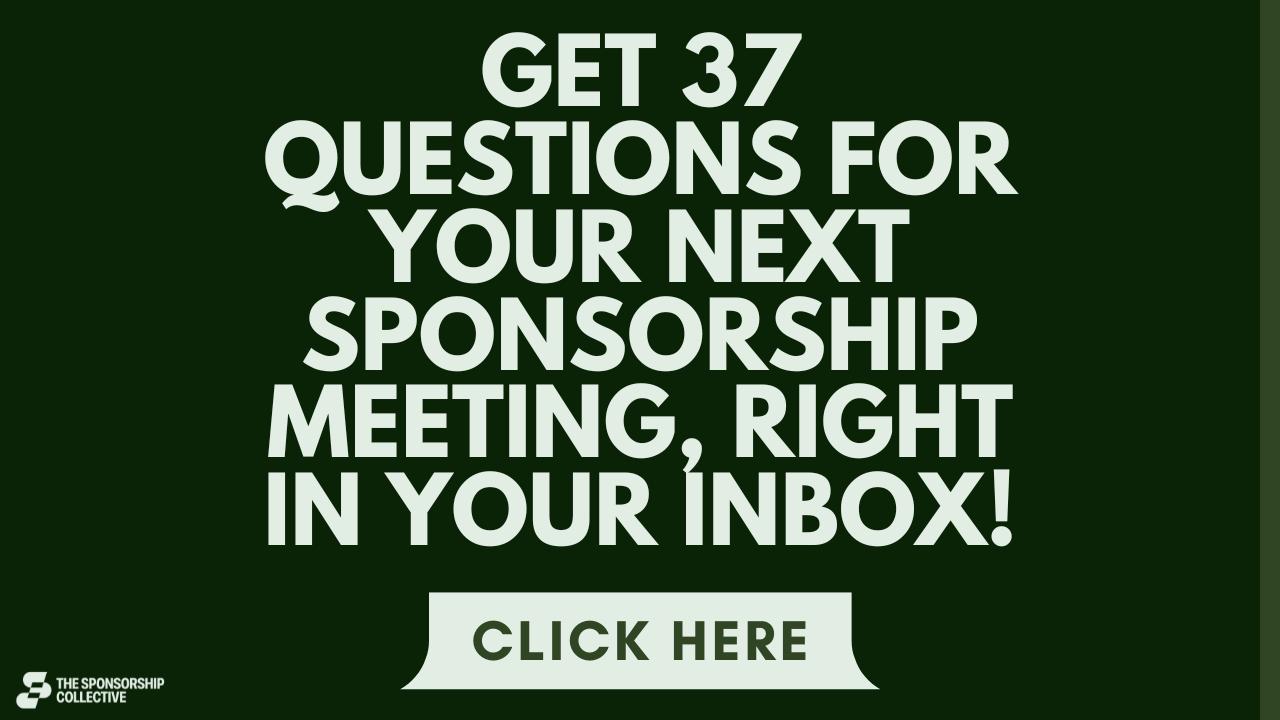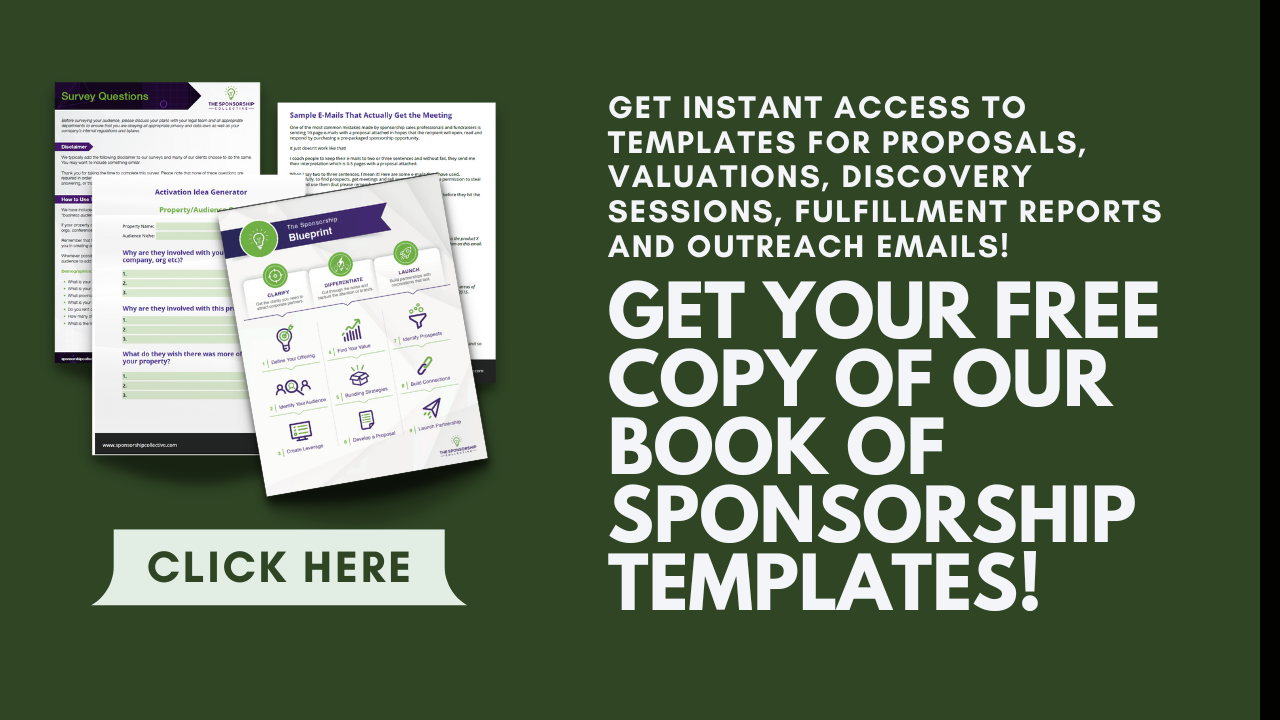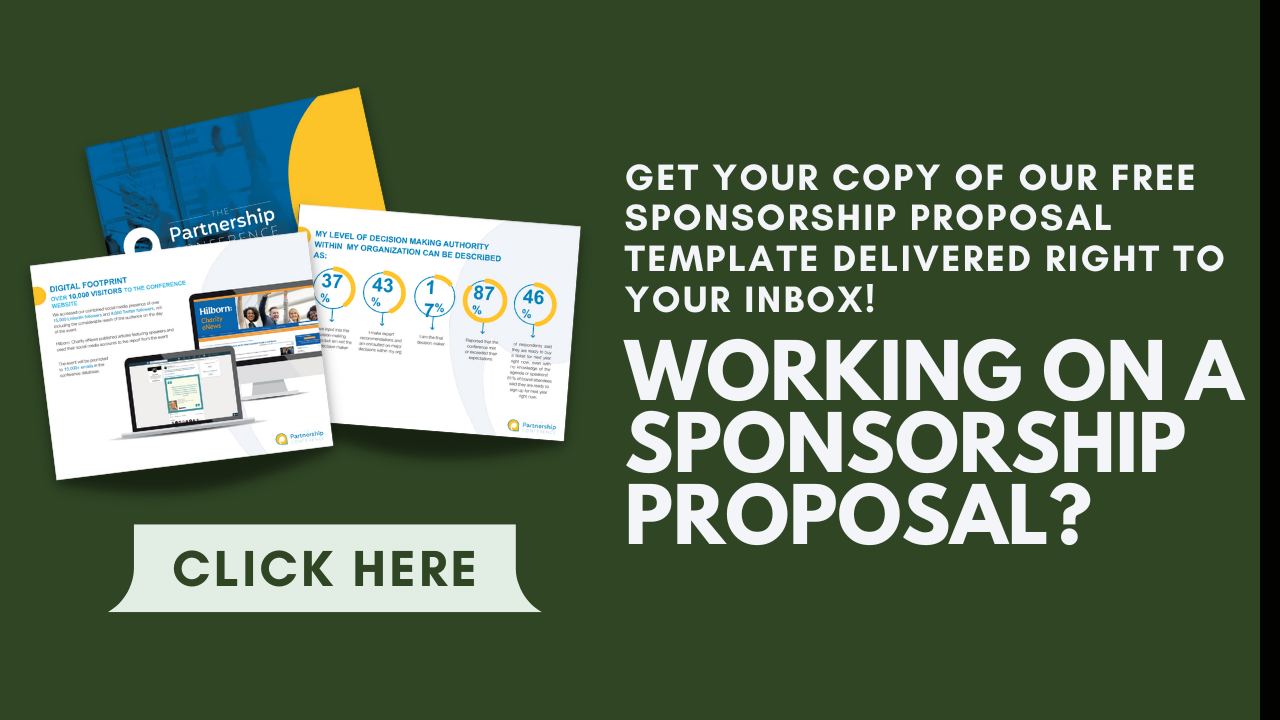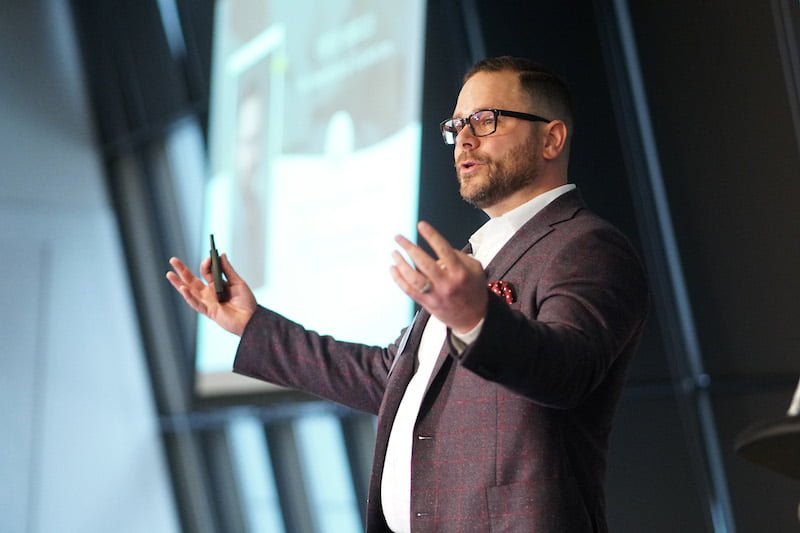Before you dive in, if you are interested in podcast sponsorship, check out these titles in our “sponsorship for podcasters” series:
- Resource Page for Podcast and Influencer Sponsorship
- The Complete Guide to Podcast Sponsorship
- How Much Should You Charge for Podcast Sponsorship
- How to Grow a Podcast
- Cold Email Strategies for Podcast Sponsorship
Did you read my article on podcast sponsorship mistakes and feel ready to begin pitching to prospects? However, you worry about your approach. What is the right way to pitch podcast sponsorship, and what mistakes to avoid?
Here are the do’s and don’ts of pitching podcast sponsors:
- DO have a discovery session first
- DON’T pitch before valuing your assets
- DO customize your sponsorship package
- DON’T include pricing
- DO act like a professional
- DON’T send your proposal early
- DO highlight audience data
- DON’T regurgitate your sales pitch
- DO get everything in writing
Pitching podcast sponsors does have a learning curve, but you can better navigate the waters with this collection of tips. Keep reading for great actionable information.
DO Have a Discovery Session First
You shouldn’t pitch a thing to your prospects before sitting down (literally or figuratively, your choice) for a discovery session.
What is discovery? It’s an informal meeting between you and the prospect where you get to know the kind of information you can’t find on LinkedIn or their website. I’m referring to the prospect’s pain points, goals, challenges, and needs.
How do you get this kind of information? That’s easy – by asking the right kinds of questions. Here is my classic, tried and true list of discovery questions to ask.
You’ll see there are nearly 40 questions on that list. I do not recommend asking every single question. Instead, pick seven to 10 that stand out to you based on what you know about your prospect from research and ask those.
You’re free to alter the questions any way you want but keep the questions targeted around audience, business goals, sales, and marketing. Veering too far off the course won’t do you any favors.
Now that you have this information, what do you do with it? That’s also easy. Add it to your research on your prospect to build a full profile. Then determine what kinds of solutions you can offer them to help with their problems.
Those are your assets and activations. An asset is tangible or intangible, providing value to the sponsor, and activations are experiential marketing opportunities.
DON’T Pitch Before Valuing Your Assets
What is your podcast sponsorship opportunity worth? One of the biggest mistakes beginner sponsorship seekers make is assuming the sponsor will tell you.
They won’t. For starters, a sponsor doesn’t have access to the same information you do, so they can’t truly know what your opportunity is valued at.
Plus, even if they had this data, it’s not their job to tell you. They’re sponsors, not appraisers.
You must already know your sponsorship property value by the time you pitch to podcast sponsors. You’ll figure it out between the discovery session and the initial pitch.
Valuation is the key to determining the value of your sponsorship property. Here’s more information.
A valuation is an informal process where you compare the cost of services on the market versus what you charge for those services. Then, you determine if your prices are on-par with the cost of professional service or if you can increase or decrease your prices from the baseline.
For instance, if you have a popular podcast, your assets may be worth more than a newer podcast.
However, a conservative pricing estimate is best. Over-inflating the cost of your assets and activations turns away sponsors. It’s one thing if you have the quality to back up what you’re asking for, but many new sponsorship seekers simply don’t.
I’m not recommending you undercut your profits, but don’t let the ability to set prices go to your head.
DO Customize Your Sponsorship Package
Before pitching to a podcast sponsor, ask yourself something. Are all the assets and activations in your sponsorship package customized to them?
In other words, are you providing the same ol’ assets you gave your last sponsor? As a podcast host, you must tailor your offerings to the sponsor’s wants and needs.
High-value assets aren’t commercials, by the way. An advertisement on a commercial break of your podcast doesn’t offer a sponsor much of anything beyond name recognition. Most sponsors don’t want that because they’re companies pursuing marketing outcomes.
Brand recognition isn’t much of an outcome. It doesn’t result in website visits, leads, conversions, and sales. It just puts a name in someone’s head, and maybe they think to look them up later if they remember, perhaps.
By the way, don’t mention in your sponsorship package that it’s customized. If you did it and did it well, the contents will speak for themselves. A sponsor will clearly see you customized the assets and activations, so there’s no need to mention it.
DON’T Include Pricing in Your Proposal
You’ve valued your assets, so it’s time to incorporate the pricing into your list of assets, right? Wrong.
Pricing has no place in your podcast sponsorship package. Why is that?
Seeing your sponsorship package priced for $10,000 gives the sponsor two options, take it or leave it. They may very well leave it.
You can also end up undercutting yourself. Sponsors are sometimes willing to pay more for valuable audience segments, but when you have your price right in front of them, they’ll just take that price because it’s more convenient.
Once a sponsor accepts your pitch, you two can negotiate. Give them that opportunity, and read my god if you don’t know how to negotiate.
DO Act Like a Professional
The thing about sponsors that transcend industry is that they don’t like amateurs.
I think that’s true of just about any professional. The sponsor’s reputation is on the line by agreeing to work with you, so they want to feel like they’re on similar or equal footing with you.
One of the fastest ways to treat yourself like an amateur when pursuing sponsorship is to defer to everything the sponsor says and does.
Remember, you’re the podcast expert here. Act like it, especially when you pitch. Be confident in your words, know your value, and use that when pitching.
DON’T Send Your Sponsorship Proposal Early
So when and where does the pitch happen when approaching a podcast sponsor? It’s not right after finding them through a Google search or a recommendation from a friend or contact.
This is one of the most substantial and detrimental sponsorship mistakes in the podcast sphere and otherwise.
I know a lot of sponsors, and I don’t mean through my work (although I do there, too). I’m friends with them, and what they tell me about receiving unsolicited sponsorship proposals would make some of you blush.
Like film studios don’t want unsolicited scripts, sponsors don’t want unsolicited proposals. It doesn’t matter if you email them, send them through social media, or physically mail them with a bow. They don’t want your proposal until they want it.
That could come after one meeting, three meetings, or never. Sometimes, there’s no need for a formal proposal, only a loose outline of what you bring to the table.
So here’s my recommendation to you. Don’t write the proposal before you’ve had a discovery session. You’re wasting your time.
Part of the reason sponsors don’t want unsolicited proposals, especially if they’ve never spoken to you before, is that they know there’s no way the proposal will fulfill any of their needs.
It can’t, as you don’t know the sponsor’s needs yet since you didn’t have a discovery session. Your proposal is full of stock sponsorship assets and activations that have either worked for other sponsors in the past or perhaps haven’t worked, but you keep sending them anyway.
Save the time you would spend putting together a stock proposal and use it to research prospects or set up a discovery meeting.
DO Highlight Audience Data
What is the most alluring proposition you can have in your sponsorship package? It’s your audience.
Sponsors agree to work with partners due to the strength and desirability of their audience. They want to grow their audience, so if your listeners match the sponsor’s target well enough, you usually have yourselves a deal.
How do you know who listens to your podcast? You must dig deep and learn about them. Look through your listenership data. You should be able to learn basic facts, especially demographics and geographics like location, age, and gender.
However, that’s not nearly deep and detailed enough for a sponsor. They want more pronounced demos and geos than that, and you need psychographics, or your audience’s motivations, behaviors, and opinions.
You must issue a survey to discover more about your audience segments. Ask the pointed questions about their jobs, their lives (married or not? Kids or not?), the brands they use, the events they attend, and why they like your podcast.
Use this information to filter your audience into smaller, more specific groups. Keep breaking down each group by at least 20 data points but ideally around 25 or 30.
The result? Highly segmented, tiny audience groups with ultra-specific details that sponsors salivate over.
Once you have this information, put it in a graph, chart, or table. Dress it up and make it look nice. Bring that chart or graph to the pitch meeting, and you might get a different result than in past sponsor meetings.
DON’T Be Too Salesy
The discovery meeting isn’t a sales call, but what about the pitch meeting? It is, but there’s a fine line between talking to a podcast sponsor like a human versus an ATM.
You don’t need a 30-second elevator pitch. You can skip the complicated jargon and semantics. It’s okay to speak at a normal pace rather than race through your words.
You’re not trying to “sell” a sponsor. You’re trying to get them to agree to a partnership. When you use the selling mindset, you only think about what’s in it for you, not the sponsor. This creates a lopsided dynamic where you benefit more than the sponsor.
You can introduce sales strategies, like promoting the benefits of your podcast services, but don’t be too heavy-handed.
Instead of focusing on closing the deal, make your goal BAMFAM. This acronym stands for “book a meeting from a meeting.”
Sponsors are busy people, and you have your podcast to keep your time occupied. Before you know it, both parties return to their respective lives and forget to follow up with each other.
Booking a meeting from a meeting ensures that even if you don’t “close the deal” as soon as you would have liked, you’ll have other opportunities.
DO Get Everything in Writing
As you begin getting deeper into the negotiation phase with your podcast sponsor, it’s time to go from informal discussions to formalities like putting together a contract. However, a discussion about contracts should only come up once you and the sponsor mutually agree to your arrangement.
I recommend hiring an attorney, as your sponsor will certainly have one on their end. The attorneys will review the contract as its language changes to ensure its scope is still fair to both parties.
Your lawyer can also guide you on legal recourse and explain contract terms and provisions you might not fully understand.
Of course, this is a sponsorship blog, so what I’m saying doesn’t constitute legal advice.
Ready to Secure More Podcast Sponsors?
Podcast sponsorship is so much more than commercials. You can offer your sponsors high- value assets and activations, from interviews on your show, to product placement, giveaways and contests with the sponsor’s product as prizes, and the list goes on.
The right podcast sponsorship assets and activations for your sponsor will vary depending on their needs and challenges. That’s why the first stage of pitching is always to have a discovery session, followed by thorough audience research and valuations.
Do you need help getting your sponsorship program off the ground? Do you want to learn how to master the sponsorship concepts I discussed in this post? Try my program, the Sponsorship Accelerator, today to see what it can do for your podcast sponsorship prospects.
- About the Author
- Latest Posts
Chris Baylis is the Founder and Editor-in-Chief of The Sponsorship Collective.
After spending several years in the field as a sponsorship professional and consultant, Chris now spends his time working with clients to help them understand their audiences, build activations that sponsors want, apply market values to their assets and build strategies that drive sales.
Read More about Chris Baylis




